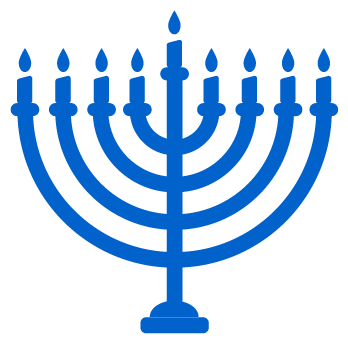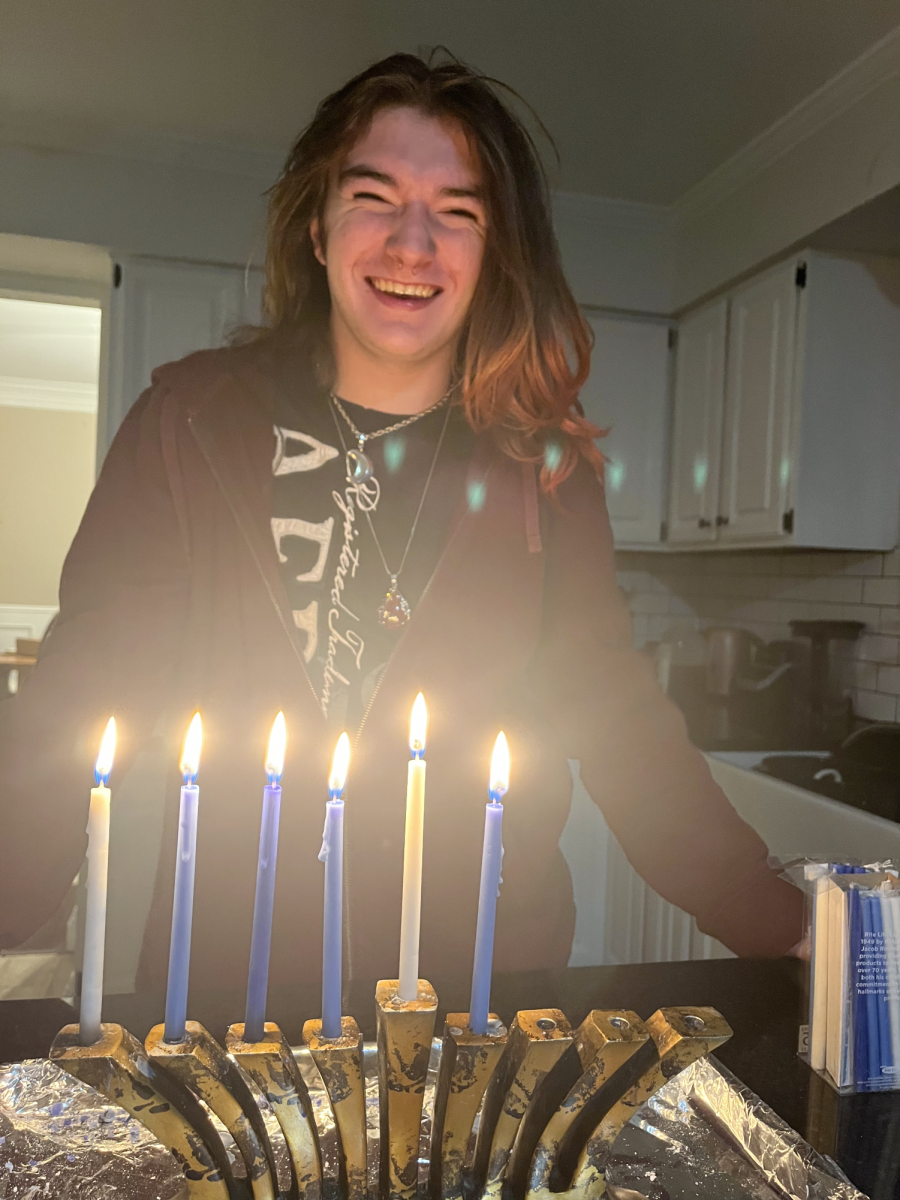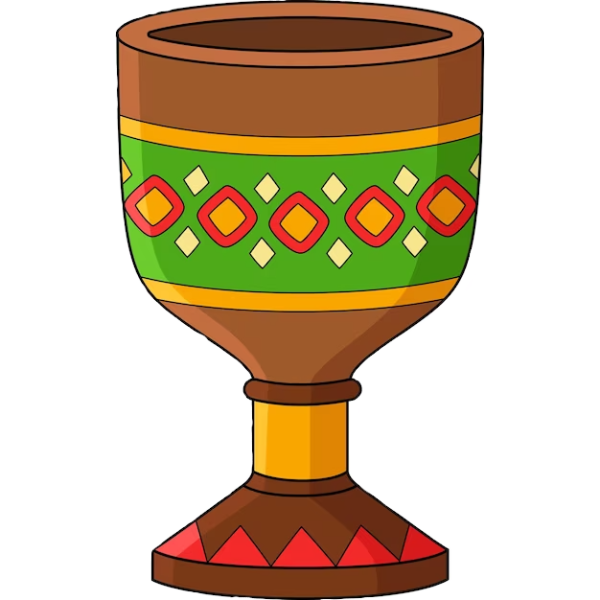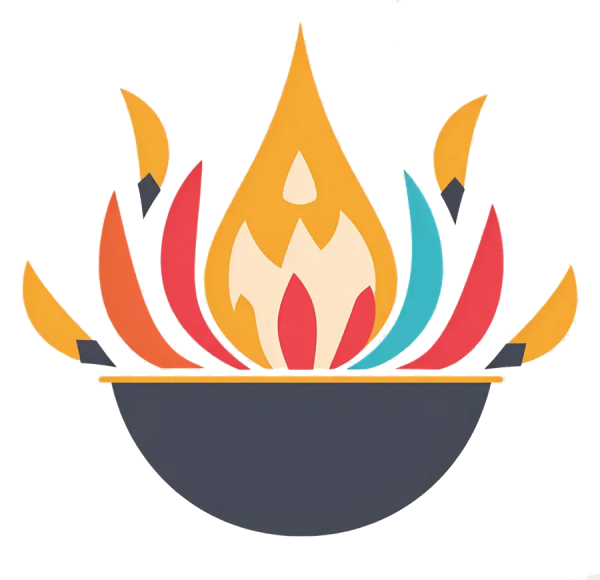Excitement is rising as the Christmas season is approaching quickly, but there are many other holidays celebrated during the next two months. Many holidays from other cultures are not typically celebrated in the United States, so many people have no knowledge of them, including Ash Zarb, a freshman at MHS, “I celebrate Christmas, so I guess I’ve never thought about what other people might do.” Some of these underrepresented winter holidays include Hanukkah, Yule, Kwanzaa, Bodhi day, Lohri, and Las Posadas.
 On Dec. 8 on the Gregorian calendar (the calendar we use) or on the eighth day of the twelfth month of the lunisolar calendar (based on the cycle of the moon), Bodhi day takes place. This upcoming year it lands on Jan. 7. This holiday celebrates the enlightenment of the Buddha. It’s often celebrated by participants meditating, studying Dharma, reciting Buddhist texts, and participating in charitable actions. The Buddha was enlightened under a Peepal tree, so tree plantings throughout all of December are common.
On Dec. 8 on the Gregorian calendar (the calendar we use) or on the eighth day of the twelfth month of the lunisolar calendar (based on the cycle of the moon), Bodhi day takes place. This upcoming year it lands on Jan. 7. This holiday celebrates the enlightenment of the Buddha. It’s often celebrated by participants meditating, studying Dharma, reciting Buddhist texts, and participating in charitable actions. The Buddha was enlightened under a Peepal tree, so tree plantings throughout all of December are common.
 Hanukkah is celebrated in the ninth month of the Hebrew calendar and this year it falls between Dec. 25, 2024 and Jan. 2, 2025. According to PBS, Hanukkah is a celebration of the rededication of the temple of Jerusalem after it was liberated from occupation. Hanukkah is celebrated by lighting a total of eight candles, one lit on each night of Hanukkah. It is a festival of light and represents hope in the Jewish faith. The menorah, the multibranched candelabra containing the candles, is often placed in an area that can be seen from the outside of a house to symbolize the spreading of light. Milford High School Senior Ari Snider celebrates Hanukkah with their family every year. “It makes me feel so connected to my culture and reminds me how much my people have powered through and survived.”
Hanukkah is celebrated in the ninth month of the Hebrew calendar and this year it falls between Dec. 25, 2024 and Jan. 2, 2025. According to PBS, Hanukkah is a celebration of the rededication of the temple of Jerusalem after it was liberated from occupation. Hanukkah is celebrated by lighting a total of eight candles, one lit on each night of Hanukkah. It is a festival of light and represents hope in the Jewish faith. The menorah, the multibranched candelabra containing the candles, is often placed in an area that can be seen from the outside of a house to symbolize the spreading of light. Milford High School Senior Ari Snider celebrates Hanukkah with their family every year. “It makes me feel so connected to my culture and reminds me how much my people have powered through and survived.”
Kwanzaa is an African festival that’s name, according to History.com, comes from the phrase “matunda ya kwanza” meaning “first fruits” in swahili. It lasts for seven nights and on each night a different value is discussed such as unity, self-determination, responsibility, cooperation, purpose, creativity, and faith. On the final day of the festival, Dec. 31, they celebrate with a traditional African feast. The festivities also include dancing, playing African drums, reciting poetry, and storytelling.
 Yule is a celebration of the winter solstice, which is on Dec. 21 every year in the Northern hemisphere and June 21 in the southern hemisphere. It was founded by and primarily celebrated by Germanic pagans, but many aspects of Yule and Christmas are the same because when Yule was outlawed, many people still followed their old traditions, but altered them for Christmas. Christmas trees and the exchange of gifts were both traditions that were started as Yule celebrations. The burning of a yule log, a massive log that burned for several days, was also traditional. Now, it’s primarily celebrated by neo-pagans, including Amelia Czanstke, a senior at MHS. She enjoys Yule because it brings some excitement to mundane winter. “I feel like it gives me more energy because it’s cold and sad, but Yule is great.”
Yule is a celebration of the winter solstice, which is on Dec. 21 every year in the Northern hemisphere and June 21 in the southern hemisphere. It was founded by and primarily celebrated by Germanic pagans, but many aspects of Yule and Christmas are the same because when Yule was outlawed, many people still followed their old traditions, but altered them for Christmas. Christmas trees and the exchange of gifts were both traditions that were started as Yule celebrations. The burning of a yule log, a massive log that burned for several days, was also traditional. Now, it’s primarily celebrated by neo-pagans, including Amelia Czanstke, a senior at MHS. She enjoys Yule because it brings some excitement to mundane winter. “I feel like it gives me more energy because it’s cold and sad, but Yule is great.”
Lohri is an Indian holiday that takes place on Jan. 13 to celebrate the ending of the winter solstice. Lohri is traditionally celebrated by holding a large bonfire and people praying to the fire god. It originated in the Himalayas, where the winters are brutal, so the festival was to celebrate the longer days coming. Now, it is primarily celebrated in Northern India. According to IndiaTimes, it is an event that is open to all and is not celebrated by one religion in particular.
 Las Posadas is a Christian holiday primarily celebrated in central and south America. It’s celebrated between Dec 16 and 24 every year. According to Britannica, it’s a commemoration of Joseph and Mary’s journey to Bethlehem before the birth of Jesus. Every evening there is a procession led by a child dressed as an angel. Adults in the parade stop at selected houses and ask for lodging, but are refused, and scriptures are read and Christmas carols are sung. Mass is also held at the end of every parade.
Las Posadas is a Christian holiday primarily celebrated in central and south America. It’s celebrated between Dec 16 and 24 every year. According to Britannica, it’s a commemoration of Joseph and Mary’s journey to Bethlehem before the birth of Jesus. Every evening there is a procession led by a child dressed as an angel. Adults in the parade stop at selected houses and ask for lodging, but are refused, and scriptures are read and Christmas carols are sung. Mass is also held at the end of every parade.
Many different holidays are celebrated around the world, with many commemorating the solstice. Christmas may be the holiday that most Michiganders celebrate, but that doesn’t mean that other holidays shouldn’t be recognized.


